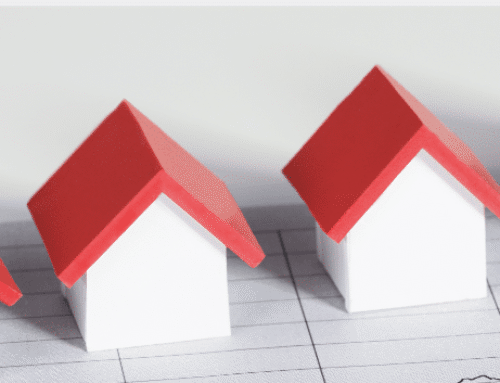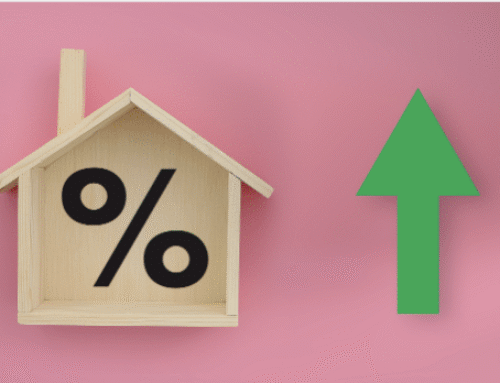Introduction
The journey to owning your first home is both exciting and challenging, especially for young singles or couples. But there are significant advantages, like the ability to start early. In this blog post, we’ll explore the key steps and considerations for first home buyers in Australia, including preparing financially, understanding the market, achieving mortgage readiness, mitigating stress and uncertainty, and planning for long-term financial stability. Let’s dive in and discover how starting early can make your first home purchase a success.
1. Preparing Financially

-
Start a Savings plan: It takes time to save for a deposit. By starting early, First Home Buyers have a head start and lessen their financial burden when making the purchase. Having a strong savings record to show a lender is crucial for covering the deposit payment, additional cost such as solicitors fees, stamp duty and moving cost, and any other unexpected expenses that may arise. If possible, aim to save 20% of the planned purchase price to avoid mortgage insurance and to secure better loan terms.Also consider saving accelerators like the First Home Buyer Super Saver Scheme and / or a high interest savings account.
-
Establishing a Budget: One of the most critical steps in preparing for your first home purchase is establishing a realistic budget. Knowing how much you can afford to spend on a home, including mortgage repayments, utilities, and maintenance, will help you narrow down your options and prevent financial strain.
-
Reducing Debt: Paying down existing debts can improve your credit score and increase your borrowing capacity. Focus on reducing high-interest debts first, such as credit card balances, to enhance your financial stability.
-
Build your Credit Score: It takes time to build and increase credit scores. By preparing ahead of time, people may take care of any problems and establish a solid credit history, which can result in more favourable mortgage conditions and cheaper interest rates.
2. Understanding the Market

-
Take Time to Research: Real estate markets fluctuate. Early planners can make better informed decisions since they have more time to investigate neighbourhoods, market trends, and property values. It also allows for building relationships with the right real estate agents so you know what is coming onto the market.
-
Identifying Opportunities: Early planners may be able to identify opportunities in developing neighbourhoods or when the market is favourable for buyers. And if you start early you are able to take advantage of off the plan properties as there is no need to have a home immediately.
-
Researching Locations: Understanding the real estate market involves researching different locations to find areas that match your lifestyle and budget. Consider factors such as proximity to work, amenities, schools, and public transport when choosing a location. By starting early you have the time to weigh up different factors and decide which is most important.
-
Market Trends: Stay informed about market trends, including property prices and interest rates. This knowledge will help you make informed decisions and identify the best time to buy. Attending open houses and speaking with real estate agents can also provide valuable insights.
3. Mortgage Readiness

-
Checking Your Credit Score: A good credit score is essential for securing a favourable mortgage interest rate. Check your credit report for any errors and take steps to improve your score if necessary, such as paying bills on time and reducing debts like credit cards, car loans and buy now pay later accounts.
-
Getting Pre-Approved: Securing mortgage approval involves documentation and financial assessment. Early planning allows buyers to gather necessary paperwork, address any potential red flags, and improve their financial standing in order to expedite the loan approval process. And obtaining a mortgage pre-approval gives you a clear picture of how much you can borrow and demonstrates to sellers that you are a serious buyer. This step can also expedite the buying process once you find your ideal home.
-
Choosing the Right Mortgage: Early planners have the luxury of exploring different mortgage and lender options, comparing terms and features, choosing the most suitable mortgage for their financial situation, and engaging a Mortgage Broker to get the best deal possible.
-
Understanding Loan Options: Familiarise yourself with different mortgage options, including fixed-rate vs. variable-rate loans, offset accounts and redraw etc. Each type has its advantages and disadvantages, so choose the one that aligns with your financial situation and long-term goals.
4. Mitigating Stress and Uncertainty

-
Avoiding Rushed Decisions: Rushed decisions in real estate can lead to buyer’s remorse or financial stress. Early planning gives buyers the time to weigh their options, negotiate effectively, and make decisions confidently.
- Handling Unexpected Issues: Planning ahead allows buyers to anticipate and mitigate unexpected challenges, such as repairs, legal issues, or market fluctuations.
-
Working with Professionals: Engaging with real estate agents, mortgage brokers, and conveyancers provides expert guidance and reduces the stress associated with buying a first home. These professionals can help you navigate the complexities of the market and make informed decisions.
-
Setting Realistic Expectations: Understand that the home-buying process can be lengthy and involve some compromises. Setting realistic expectations about what you can afford and what features are essential versus desirable will help you stay focused and reduce frustration.
5. Long-Term Financial Planning

-
Considering Future Needs: While buying your first home, take the time to think about your long-term plans. Will the property suit your needs if you decide to start a family? Does the location offer potential for growth and increased property value? Planning for the future ensures that your Home purchase remains viable and beneficial.
-
Building Equity: Owning a home allows you to build equity over time, which can be a valuable financial asset. Consider ways to enhance your property’s value, such as renovations or improvements, to maximise your home value.
-
Financial Resilience: Having an emergency fund is crucial to maintain financial stability in case of unexpected events, such as job loss or major repairs. Aim to save at least three to six months’ worth of living expenses to safeguard your financial health.
Conclusion

Starting early on your journey to buying a first home in Australia offers numerous benefits, from peace of mind to having a good grasp of the journey to financial stability to long-term investment growth. By preparing financially, understanding the market, achieving mortgage readiness, mitigating stress, and planning for the future, you can navigate the complexities of Home Ownership with confidence. Whether you’re single or a young couple, taking these proactive steps will help you turn the dream of owning your first home into a reality. Happy house hunting!
If you have any questions, schedule a free consultation with us today.








Leave A Comment